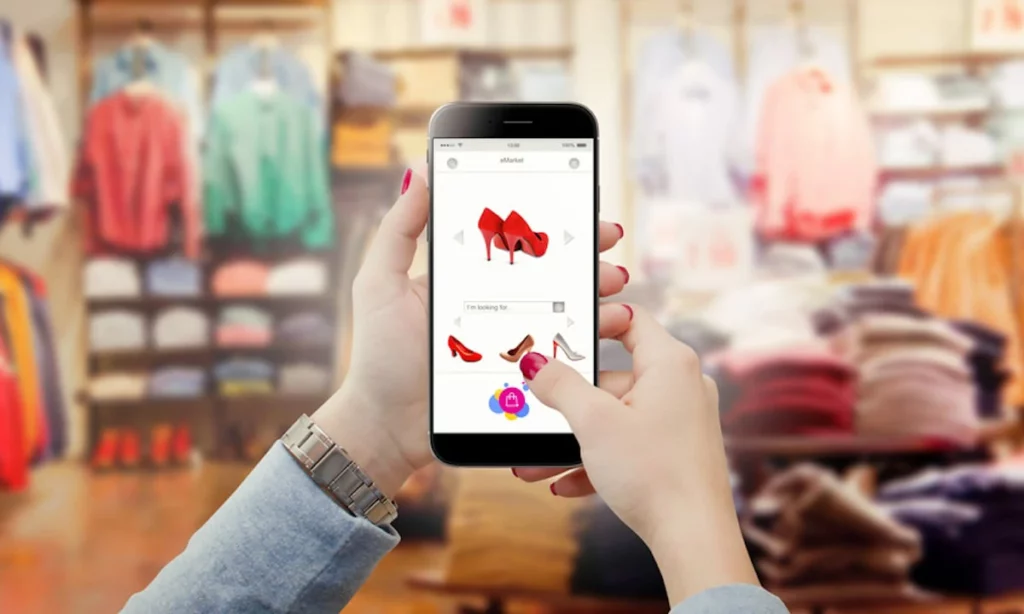- Artificial Intelligence has a growing influence on the marketing and logistics of large consumer companies, which use customer data to optimize their chain
- Thanks to this information, many of the main firms worldwide can compete with other cheap ones that only have an online presence, opening a new stage of e-commerce
If you regularly read our articles, you are probably already aware of the many events and developments that are changing the way we buy and sell. There are countless technologies that already have a direct influence in this regard, and Artificial Intelligence will define the future of merchandising in a very short time . That is precisely the perception that more and more international analysts in the sector have..
Of course, we start from a special time in which we are attending to certain phenomena that define it. We are talking about issues such as the shortage of labor and the increase in transport costs, which are leading the main international firms to increase the efficiency of their logistics processes .
The fact is that having the right and necessary stock on the shelves is more important than ever, and the growing demand for information based on data inspires new predictive solutions, which are supported by Artificial Intelligence..
How is this context understood?
In 2021, the producer price index, a measure of wholesale prices for goods and services, rose 9.7%. Due to supply chain issues and inflation, many consumer brands have increased their prices. And this trend is expected to continue over the next year .
Others such as Kraft Heinz and Procter & Gamble have announced increases in their retail prices of up to 30%. As we said at the beginning of the article, the explanations lie in the shortage of labor and the higher costs related to transport and distribution. But those increases are not the only issue to consider ..
Currently, one of the main problems facing these consumer brands is that the public, their buyers, can resort to cheaper alternatives. That they are because they are usually more efficient, of course.
That's where technology comes in: to help brands stay ahead of direct competition . Precisely, Artificial Intelligence could help them improve the efficiency of their inventory management processes, optimizing the customer experience, and obtaining the necessary data so that all parties benefit.
In a situation where margin squeeze is imminent and unavoidable, AI-driven merchandising could help private label brands increase efficiency and sales .

The arrival of predictive marketing
Predictive merchandising is currently one of the most promising segments of the AI retail market. Many expect it to reach a total volume of $19.9 billion by 2027, according to Meticulous Research . Amazon, Google, Intel, Microsoft and IBM are some of the great protagonists of this revolution .
But Artificial Intelligence in merchandising is clearly influenced by those who promote it .
For example, in early February, Onebeat , an AI-powered startup that helps retailers and brands analyze their customers' needs, received a seed round of funding of about $5 million.
Pivot , a Miami-based startup that allows brands to choose the ideal location and in-store space to display their merchandise, raised a venture capital round drawing the attention of numerous investors.
Finally, Inspector Cloud recognizes products, collects data and provides reports, saving time spent in stores, avoiding manual operations that often slow down processes.
Conclusions
The future is bright for AI-powered startups providing predictive merchandising services. A recent IBM study revealed that 72% of customers, among 19,000 people surveyed, continue to buy in physical stores beyond the relevance that “online only” options have acquired. They prefer to see and touch.
As long as consumers choose a hybrid shopping model, merchandising will continue to drive sales. As a result, more brands and retailers will adopt AI to understand their customers and receive data-driven insights and recommendations , so this trend has only just begun.
In what other ways do you think Artificial Intelligence will influence the future of merchandising?